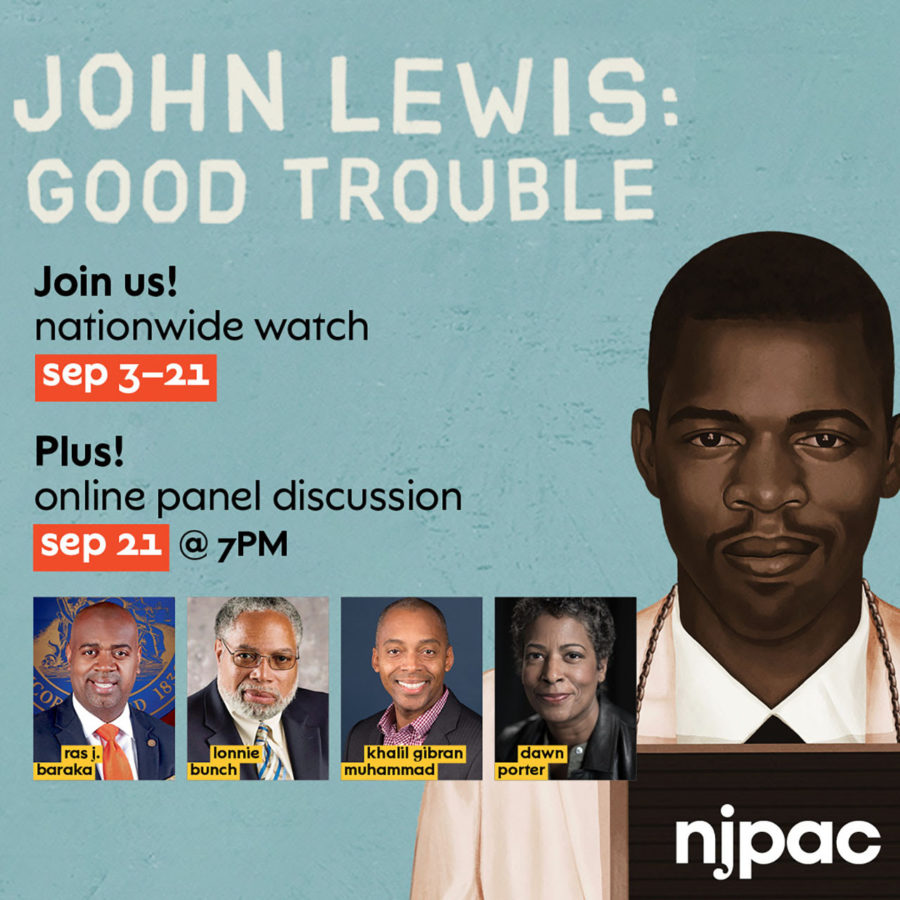Documentary of John Lewis, webinar available for students through Stephens Auditorium
Stephens Auditorium partnered with the New Jersey Performing Arts Center to present a webinar highlighting the documentary “John Lewis: Good Trouble.”
September 21, 2020
Stephens Auditorium partnered with the New Jersey Performing Arts Center (NJPAC) to present a webinar highlighting the documentary “John Lewis: Good Trouble.”
The webinar was the final installment of a nationwide watch party produced by NJPAC. Viewers could rent “John Lewis: Good Trouble” and attend the webinar that included a discussion with people who knew John Lewis through professional pursuits and personal endeavors.
The documentary goes through the life of Lewis from his time as an activist during the Civil Rights movement to his last days in congress.
“People who know the congressman know that moment in the bridge,” said Dawn Porter, director of “John Lewis: Good Trouble.” “But I wanted to back up from that. John Lewis didn’t just show up on a bridge. He studied. He planned.”
Among the panelists, Porter spoke of the memories she made with Lewis and how she wanted to portray him in the film. While creating the film, Porter and her team documented the daily life of Lewis in recent years while combining footage of his younger self involved in major historical events.
Lonnie G. Bunch III, the current secretary of the Smithsonian Institution, was also a featured panelist. He knew Lewis through their work together on establishing the National Museum of African American History and Culture.
“What I was struck by was that for many of us now, people talk about John Lewis as sort of a gentle visionary,” Bunch said. “They forget that he was a revolutionary, that he was a radical. He had that will of steel to get something done.”
The third and final panelist was Mayor Ras Baraka of Newark, New Jersey. Baraka was greatly inspired by Lewis’ leadership in activism and influences on education. Baraka also commented on how films like “John Lewis: Good Trouble” are essential in motivating future generations to make progress in social activism.
“It gave me a relationship with him, and I didn’t even know him,” Baraka said. “I think that this does that. It gives our young people a relationship with history and a relationship with a time they could not possibly be in.”
The three panelists conversed on how Lewis’ work affected their lives and the lives of people in the United States. They all agreed that he was someone who made history and changed the course of American politics for good.
The webinar was presented via WebEx, and the film was available to rent through the NJPAC website. The cost to rent was $12, and $5 of each rental went to arts centers throughout the country. Programs such as this one are assisting centers like Stephens Auditorium as ticket sales are at a halt due to social distancing guidelines.







